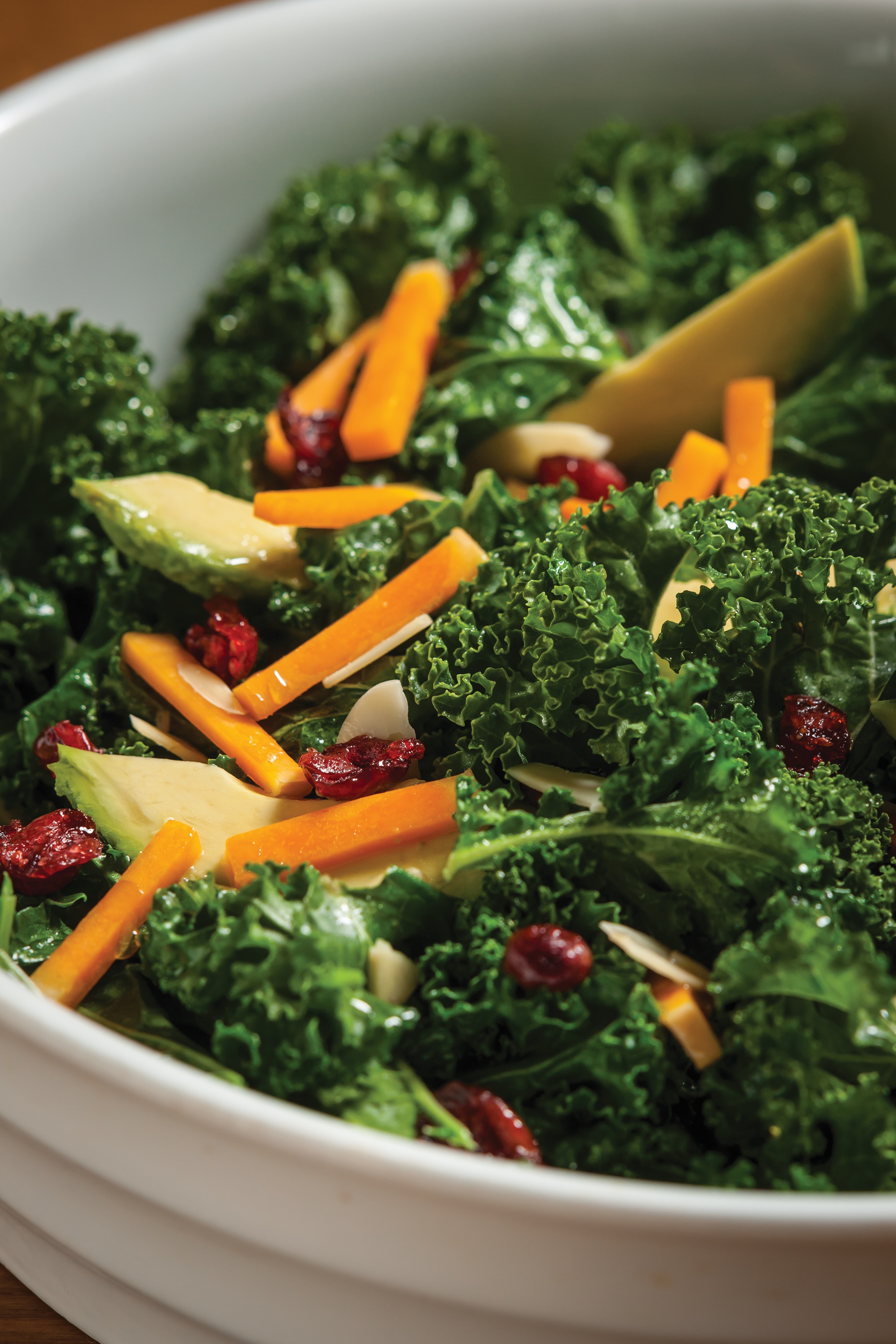Have you ever spent a day saying, “That’s it! I feel gross. I’m going to get serious and start eating clean!” So you start with your healthiest regimen of smoothies, turkey burgers, and cauliflower. The next day you step on the scale and say, “How have I gained weight after all this clean eating?”
There’s a reason our healthy intentions and diets are not always yielding the results they should. That reason is called inflammation. Here’s what you need to know—we are all chemically unique. And what’s healthy for me may not be healthy for you. This is called bio-individuality—we all respond to stimulus differently. Your weight and your health are simply your chemical response to the foods you’re eating. My own practice treating thousands of clients has shown that even healthy foods can cause inflammation, which can pose serious problems not only for weight loss, but for short- and long-term health. Chronic low-grade inflammation can cause obesity, premature aging, and even disease.
Inflammation is an essential part of the body’s healing system. Your immune system attacks anything in your body that it recognizes as foreign—like bacteria, viruses, pollen, and yes, even compounds in healthy foods. Choose the right foods, and you can reduce your risk of illness and reduce inflammatory-related weight gain. Consistently pick the foods that don’t work for your chemistry and you can accelerate the inflammatory disease process, not to mention gain weight. The foods that can be highly inflammatory may surprise you; it can be foods like black beans, asparagus, oatmeal, and Greek yogurt.
When you eat foods that don’t work for your chemistry, your histamine and cortisol levels start to rise. This means you will have short-term water-weight gain from the heightened histamine response and long-term fat storage from the raised cortisol. Elevated cortisol levels also mean that you’re also more likely to be stressed out and this will negatively affect your hormones, like progesterone and estrogen. These constantly fluctuating hormones will attack your master gland of metabolism, your thyroid. It’s hard to believe that a healthy food like strawberries can create this domino effect in your body, but if strawberries don’t work for your chemistry, some version of this is likely to happen in your body. When you find the foods that work for your body, you lose weight easily and feel better. In fact, I have seen positive changes in as soon as three days following a low-inflammatory diet and up to 10 pounds of weight loss.
Well, aside from weight gain there are simple signs that your body is saying “Please don’t feed this food to me!”
- bloating after a meal
- constipation
- 3:00 p.m. energy dip
- body aches and pains
- irritability
- depression
- hormonal issues
Identifying your “friendly foods” is as simple as listening to your body or doing an elimination diet, like I detail in my book, The Metabolism Plan. Remember, there is no reason to have declining health, low energy levels, or weight gain as we age. That is all a by-product of eating foods that don’t work for your unique chemistry.
If your health is great and you’re at a perfect weight for you, then you are probably eating the foods that work for you. But if you are like the millions who are struggling with weight loss and health issues, it may be as simple as starting to pay attention to how your body responds to the foods you are eating.
One simple sign is to note how you feel after a meal. Are you gassy, bloated, or tired? Do your joints hurt; are you suddenly sad or irritable? That’s a sign that something you ate at your meal didn’t work for your chemistry!
Often we focus on what food should be eliminated to get your body feeling great, but it’s just as important to start weeding out toxins and endocrine disruptors from our environment.
Used to line cans, coat receipts, and make some plastics.
Your plan: Most canned foods contain BPA, so try to eat fresh food whenever possible (more nutrients!) or look for BPA-free cans. You might also want to avoid plastics whenever possible, especially BPA plastics.
Used in many types of plastics and personal-care products, often signaled by the term “fragrance.”
Your plan: Avoid plastic food containers and plastic wrap with the recycling label “3”; also read the labels carefully on personal-care products and avoid those with either “phthalates” or “fragrance” listed. I recommend most of the products by Arbonne which is a vegan line of cosmetics and skincare. You can visit my site for the products I recommend.
Found in old paint and drinking water.
Your plan: Get rid of crumbling old paint—but carefully!—and install a water filter.
Found in drinking water and in brown rice.
Your plan: Get a water filter, and limit your use of rice—especially brown rice and products that contain brown rice flour such as protein powders and brown rice pasta.
Found in large fish as the result of industrial pollution.
Your plan: Avoid tuna and stick to healthier fish, including wild salmon sashimi (cooked salmon can be reactive for many people, so avoid it until you test it).
Used to make nonstick cookware as well as stain-resistant and water-resistant coatings.
Your plan: Avoid those products.
After eating this way, see how you feel. Are you bloated at the end of the day? Do you have more gas than usual? Find out which foods from this list are causing your symptoms by noticing how you feel after each meal. Alternatively, are you feeling amazing? Your body will tell you everything you need to know.
Originally published at www.mindbodygreen.com


